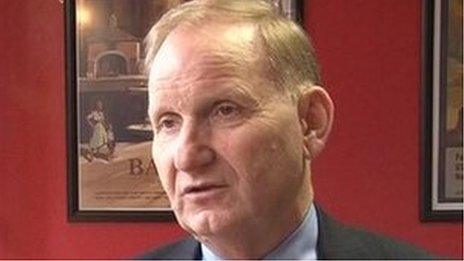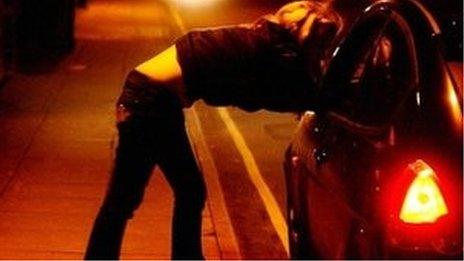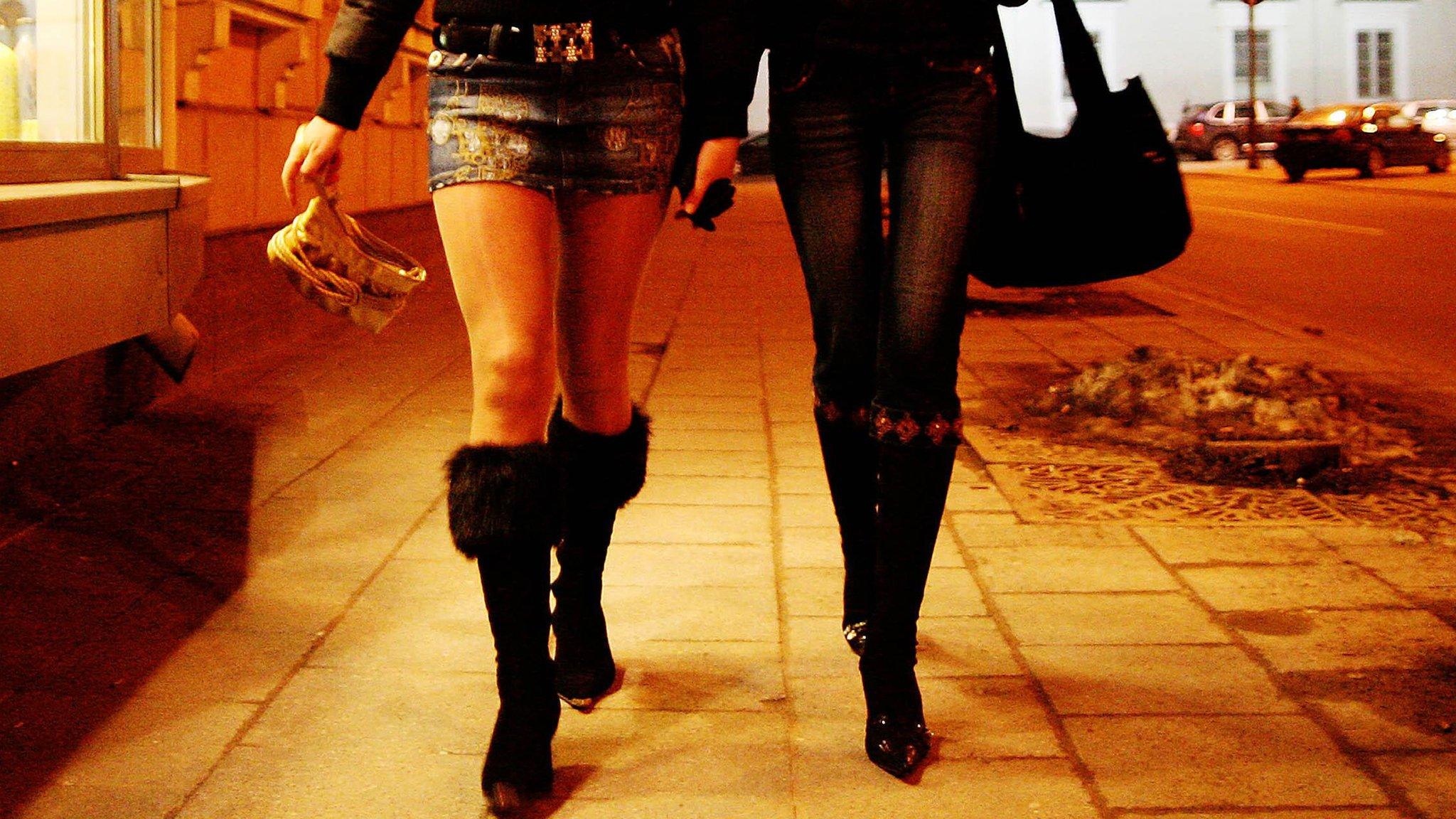Researchers suggest 17,500 men pay for sex in NI each year
- Published
Dr Susann Huschke said the sex industry had changed significantly over the last decade
About 17,500 men pay for sex each year in Northern Ireland, a study by Queen's University, Belfast, has suggested.
The research was commissioned by the Department of Justice in response to DUP peer Lord Morrow's proposed Human Trafficking Bill.
The bill seeks to make it illegal to buy sex.
Researchers surveyed 171 sex workers and 446 clients, looking at all aspects of prostitution, including trafficking for sexual exploitation.
The study suggests that:
Only about 20 people still work as street-based prostitutes in Northern Ireland
The majority of the industry advertises online and works from houses
Between 300 and 350 people are available for sex work every day
There is a significant number of male sex workers in Northern Ireland
Fewer than 1% of those surveyed stated that someone had forced them into prostitution
However, Lord Morrow's Democratic Unionist Party has criticised the methodology used by the researchers, claiming the survey sample was too small.
Paid-for consensual sex is not illegal in Northern Ireland.
However, selling sex at a venue shared with other prostitutes, the involvement of a pimp or "booker", and soliciting for sex in a public space are criminal offences.
Lead author of the research, Dr Susann Huschke, said: "The sex industry has changed significantly over the last 10 years.
"People are still working on the basis of stereotypes that aren't true."
A majority of sex workers who were surveyed said they did not agree that it should be illegal to pay for sex.
More than a third of men questioned for the study mistakenly assumed they were breaking the law by paying for sex.
'Misery'
Lord Morrow's party colleague, Paul Givan, who is a member of the Northern Ireland Assembly's justice committee, told BBC Radio Ulster he had "serious concerns" about the research document.
Mr Givan described the sample size used by the researchers as "tiny".
"To call it extensive is to grossly exaggerate that work that has actually been carried out by Queen's University," he said.
Mr Givan claimed prostitution inflicted "misery" on the lives of sex workers, and led to women being used as "a commodity".
However, Northern Ireland Justice Minister David Ford defended the research and said the document was a "detailed" report written by six academics that stretched to more than 240 pages.
Mr Ford said it was wrong "just to dismiss it, because it doesn't reach the conclusions that the justice committee might have wished".
Meanwhile, another poll has indicated that almost 80% of people in Northern Ireland support the criminalisation of purchasing sex.
The Ipsos MORI survey found support for the Human Trafficking Bill was strongest amongst people aged between 16 to 34.
- Published23 September 2013

- Published5 September 2013

- Published21 August 2012

- Published21 August 2012